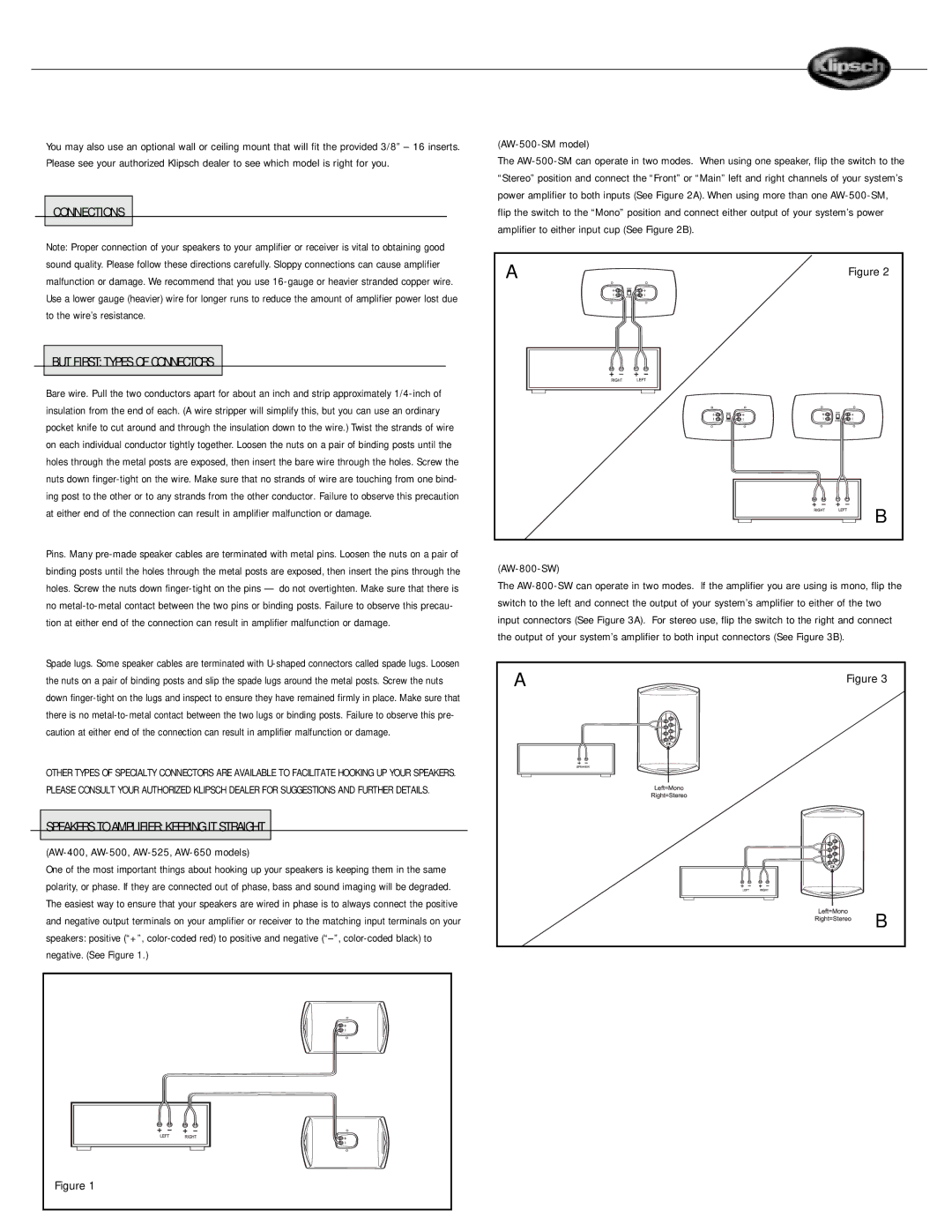2 specifications
Klipsch, a well-known name in the audio industry, has a rich history of producing high-quality speakers, headphones, and home audio systems. Among its iconic offerings, the Klipsch 2 series stands out for its exceptional sound quality, innovative technologies, and user-friendly designs.One of the main features of the Klipsch 2 is its dynamic sound performance. Engineered for clarity and detail, the speakers utilize Klipsch's proprietary horn-loaded technology, which is designed to produce a high level of efficiency. This horn loading allows the speakers to project sound over a greater distance, ensuring that every note is heard with precision and accuracy. The result is an immersive listening experience that is sure to please audiophiles and casual listeners alike.
Another hallmark of the Klipsch 2 series is its robust build quality. Constructed with premium materials, these speakers are designed to withstand the rigors of regular use while providing stunning audio reproduction. The durable enclosure not only enhances the aesthetics but also minimizes unwanted vibrations, allowing for a cleaner sound presentation. Further, the speakers often feature a stylish design, making them a great addition to any home or office environment.
Incorporating advanced technologies, the Klipsch 2 series often employs new audio innovations such as the Tractrix horn technology. This technology optimizes high-frequency performance, resulting in low distortion and wider dispersion of sound, ensuring that listeners can enjoy high-quality audio from various angles in the room.
Compatibility is another strong point of the Klipsch 2. These speakers are designed to work seamlessly with various audio systems and devices. Whether connecting to a computer, television, or home theater system, they deliver an outstanding sound experience that elevates movie night or music listening sessions.
Additionally, the Klipsch 2 often features user-friendly controls that allow for easy setup and customization of sound profiles. Many models in this series come with an onboard amplifier, enabling users to adjust the volume and other settings directly on the speaker or through a remote control.
In summary, the Klipsch 2 series embodies the brand's commitment to quality, performance, and style. With dynamic sound capabilities, durable construction, advanced audio technologies, and versatile compatibility, the Klipsch 2 is an excellent choice for anyone looking to enhance their audio experience. Whether for casual listening or a full home theater setup, these speakers promise to deliver the immersive sound quality that Klipsch is renowned for, making them a worthwhile investment for audio enthusiasts.

